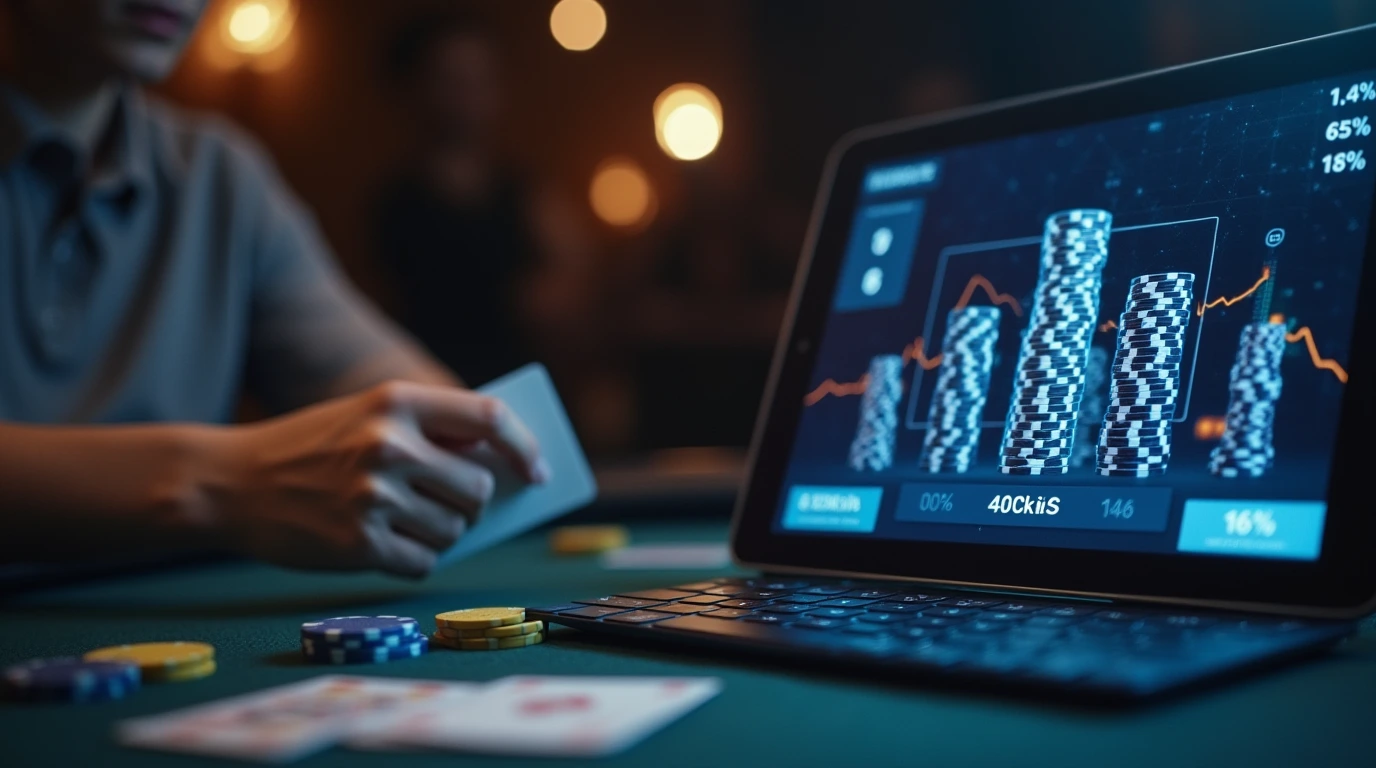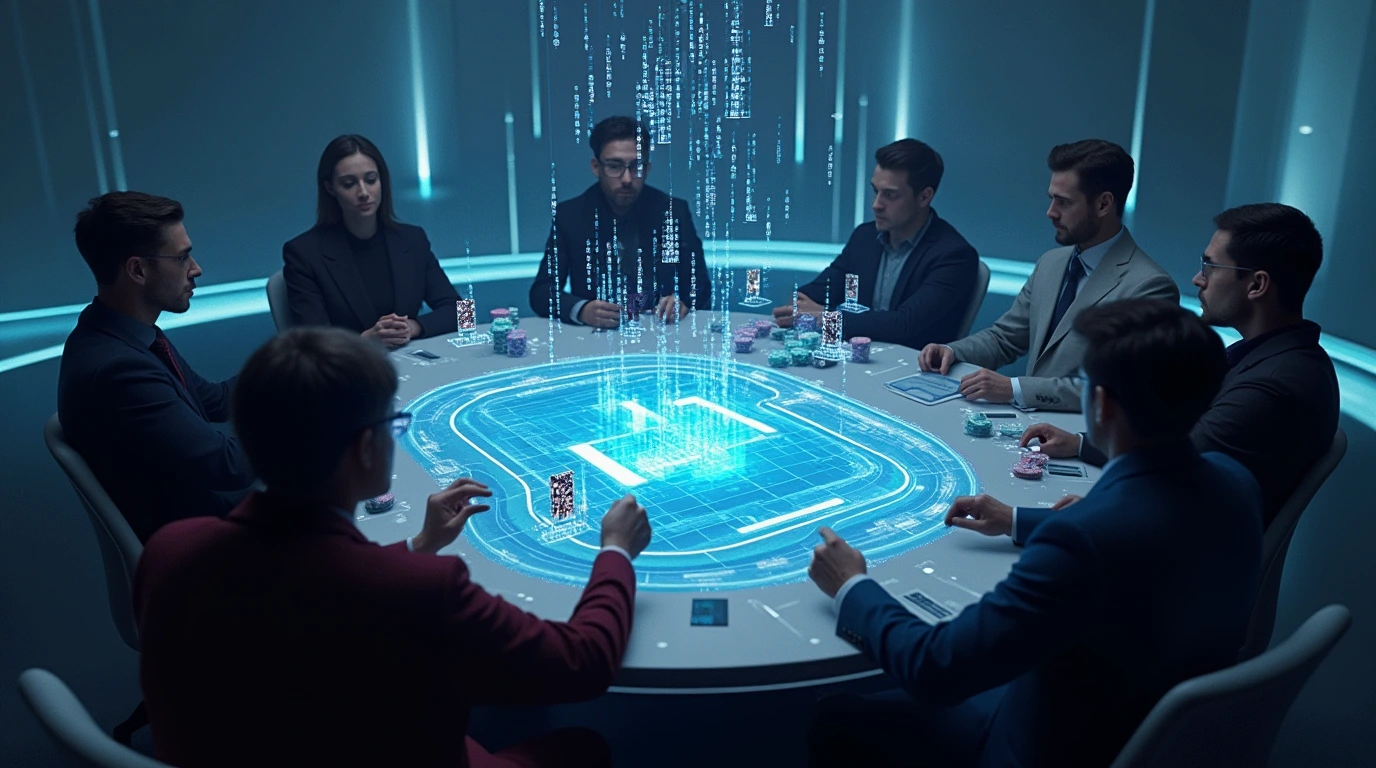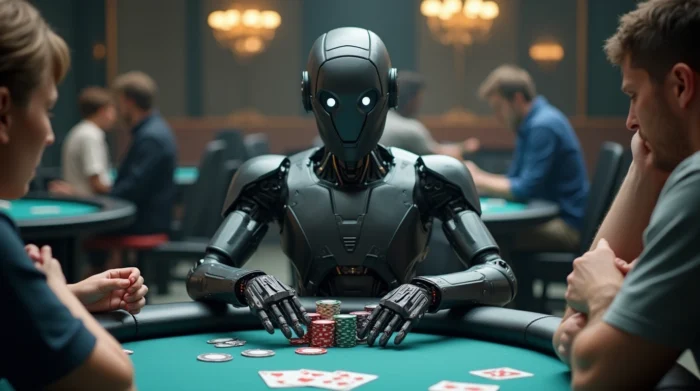It has always been the game of reading people. This gleam in an adversary’s eye, the way he fiddles with his chips, is human instinct against human bluff. But it’s changing very fast now. It could be as well in front of you, opposite an AI poker bot. And the bots don’t get nervous. They don’t get tired. And for sure, they don’t care that you might think you have them beat.
Deep research into poker AI was about trying to break the code not just behind the next unstoppable poker bot, but also poker in general. What if we could strip out all of that complexity and nuance and come up with the pure, cold strategy? That’s where poker machine learning is coming into the picture. It’s where the heart and soul of poker AI algorithms analyze millions of hands, visualize scenarios, and optimize with methods quite unthinkable by the human brain.
Let’s be honest: there is so much fear around poker bots. They cheat and spoil the game. Now, surely, the concept of some poker AI tool beating you looks unfair. At least it looks so if you do it in your free time. But here’s where it catches: these AI systems have more to do than win — they’re about learning. Those ways through which we can rethink games, the ways they challenge us to think better, smarter, or more strategically, are simply inspiring.
But one of the coolest innovations down this line has been Counterfactual Regret Minimization, or CFR. I know, the name reads like it’s out of some kind of sci-fi novel. But when broken down, it is actually pretty simple. CFR lets AI learn from past mistakes or “regrets.” It simulates hands, makes decisions, then adjusts its strategy in relation to what it could’ve done better. With more games played, it regrets less. It is, in some sense, more human than we realize; they, too, learn from failure.
But then there’s Monte Carlo Counterfactual Regret Minimization, which really allows the bot to key in on what’s salient in the game. It’s like a laser beam focus on all the important decisions and basically ignore all the noise in between, almost how a pro player would really strategize. Really fascinating and at the same time kind of scary to find out how good they actually become.
I remember the first time I got hit by one of these bots.
I mean, there was this smug confidence inside; I had been playing for years, I knew the game. Five hands in, and this was going to get ugly; he’d call my bluffs and actually predict my every move. Never had I felt so exposed on a poker table. I always feel that I’m playing chess with some grandmaster who knows your strategy even before you have thought of it.
But what is truly brilliant in the development of poker AI is not exactly in building a victorious bot but in building up further the notion of what was possible in a game so dependent on chance. It shows us strategies really unknown to even the best human players. A big part, in many ways, it is almost as if we’ve been playing checkers while they’ve been playing chess the whole time. Let me just get that out of the way: do these poker AI bots destroy the game? Some may say yes to affirmative responses. I say yes, it does; it takes out that human element, making the poker way too robotic and predictive. To me, I see things different. These systems evolve us. They really make us think outside tradition, and to me, that is no small spice.

There is something thrilling about it: that the person before you could well be a finely machined AI, and you still have yet to outsmart it.
This fact becomes even more reinforced when it comes to online poker. We all have heard the rumors, “Is he a bot? Is he using poker cheat sheets?” To say for sure is hardly possible. The line between human and machine is getting much closer. Does this make the game worse? Not by any means. It makes every hand more intense, more challenging. More than anything, it makes one sharper, more aware, and quick to adapt with every hand. We are turning soon onto a new page in poker history: this is AI in poker, and it’s not just about the changes in which ways we play but will literally change our mindset towards the strategy behind it. Intuitive playing and reading of one’s opponents may just be slowly finishing, but from that, what we gain is intuition for subtlety within.
The role of artificial intelligence in poker is still very much up for discussion.
Some tournaments ban them outright, apparently out of fear that the bots will somehow outstrip everything else. But I think that we should take this technological change in stride. After all, world champions didn’t reach the pinnacle by dodging challenges; they got there by facing them straight on. If poker AI dares us to think harder, play smarter, and develop our strategies farther, then isn’t it a better game?

Obviously, not all AI is out there to destroy humans. Some are built to investigate or test strategies and improve game theory. This is what brings us to one of the best things with poker AI strategy: they really aren’t playing just to win, but they are playing to understand. It is this chase toward mastery that keeps me leaning in, following the development of these bots. After all, poker is not about cards or chips; it’s about outsmarting either a human or a machine. And if I am to be frank, the longer work that is invested in the AI poker bots, the more I strongly feel we have barely touched the tip of the iceberg regarding the degree of possibilities that may have opened up. Yes, the bots are getting stronger, but so are we. But poker, much like life itself, is just one change after another. Many resist the rise of AI, but I say bring it on. With poker bot research into this new world, each hand was a new puzzle, and each game was a new challenge. And if that does not make poker more exciting, I don’t know what will.
